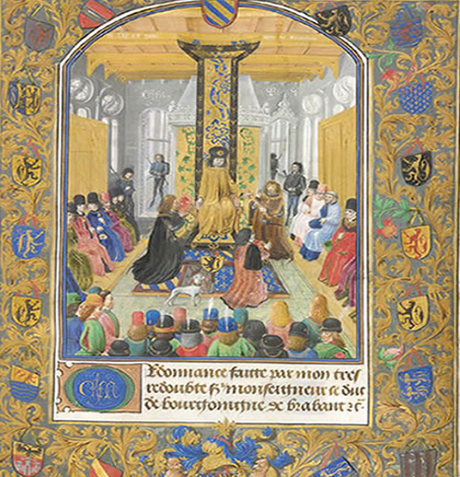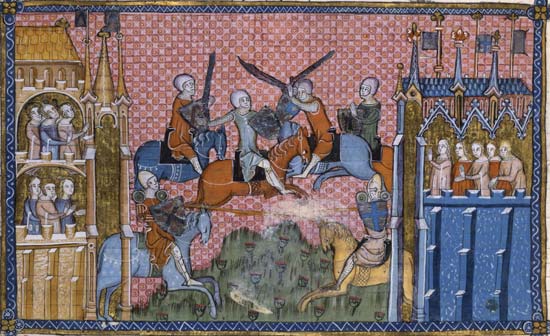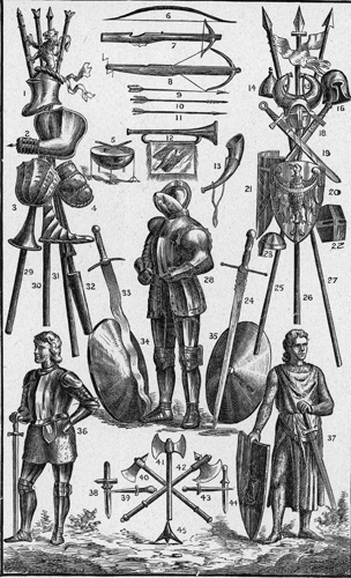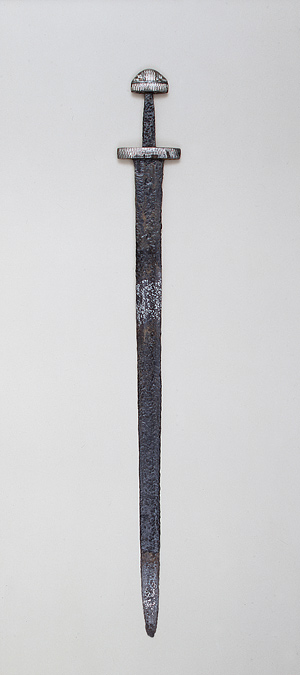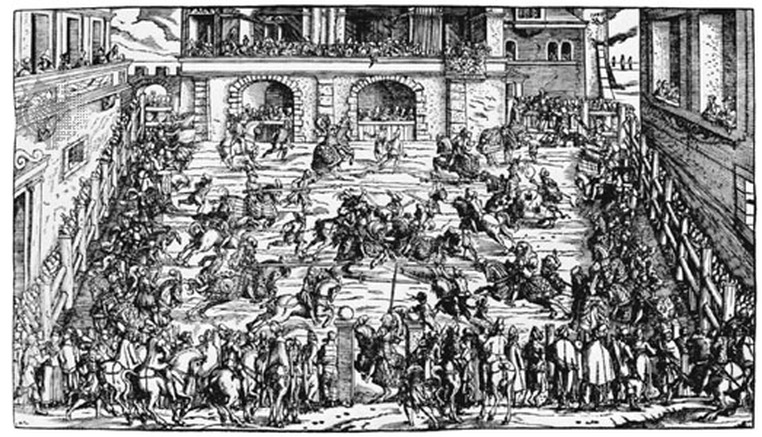The Knights
|
Under the lords in the social hierarchy in the feudal system, came the knights. Knights were professional armored cavalry warriors, some of whom were vassals occupying land form the lords whose armies they served. Since fealty and homage were key elements of feudalism, the fief was granted to a knight after a commendation ceremony that was designed to create a lasting bond between a vassal and his lord. The knight would swear allegiance to his lord—the Oath of Fealty. The Oath of Fealty was the promise of faithful service to the lord. To take an oath was a very reverential proceeding; it was an appeal to God, by which a man called down on himself divine punishment if he swore falsely. |
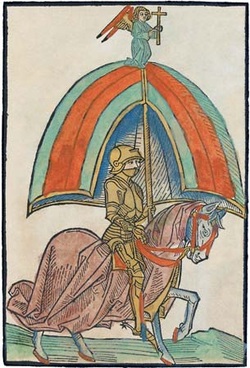 Knight in Gothic Armor
Knight in Gothic Armor
A knight who had been rewarded with land pledged his military services. Whenever a war erupted, the knights were required to fight to protect the Lord, land and the people. The knights and their armies were required to fight a limited period of 40 days. The lords and knights were required to provide trained soldiers to fight for the king as well as their weaponry, armor and clothing.
At first, most knights were of humble origins, most of them not even possessing land, but by the later twelfth century knights were considered members of the nobility and followed a system of courteous knightly behavior called chivalry. The feudal structure made it possible for members of one social standing to move up to next level and this is what many aspired to do. Squires and Pages of the Middle Ages yearned to become knights. A Knight who proved valiant in battle could become wealthy. The most wealthy and powerful knights then joined the nobility.
|
Not everyone could become a knight. Firstly, knights usually came from a wealthy or noble family. The boys who would train to become knights were usually the sons of knights or lords. At the early age of 7 years old, the boy is sent the house of another knight or lord and there they are bestowed the title “page”. During this time, they were taught proper manners, and religion, as well as how to read, write and speak French and Latin. Pages acquired their first skills of knighthood by imitating knights and practicing combat with each other using wooden swords and lances.
|
At the age of 14, a page became a squire. The squire was an apprentice to the knight who handled the knight’s armor, served his meal, tended his horse and cleaned his weapons. Besides carrying out their duties in the lord's household, squires learned the martial arts of being a knight. Squires also practiced wearing heavy armor to get used to the weight and using weapons. The Squire served in this role for seven years and became a Knight at the age of twenty-one.
|
The Knights, like the lords, also had some leisure time. A common pastime of knights was hunting with a bow and arrow. This expedition could take days and a hunting group usually consisted of many people including friends, household members, and visitors, plus a large number of servants. Tournaments were also popular outdoor pastimes. Sometimes a knight could even make a living form it. The tournaments were an essential part of feudalism as they acted as a necessary training ground for the knights.
Of the land awarded to the knight, a portion would be kept for the knight himself and the rest would be distributed the peasants and serfs. The lands granted to knights in England were called manors and the knight would live in a Manor House on his fief. Their main role was to give protection to the king and therefore they were paid quite well. The knight could also gain money, even fame, from tournaments. Therefore, the most successful of the knights were able to increase their lands and acquire more soldiers whom they might grant land to in turn for a sworn oath of loyalty.
